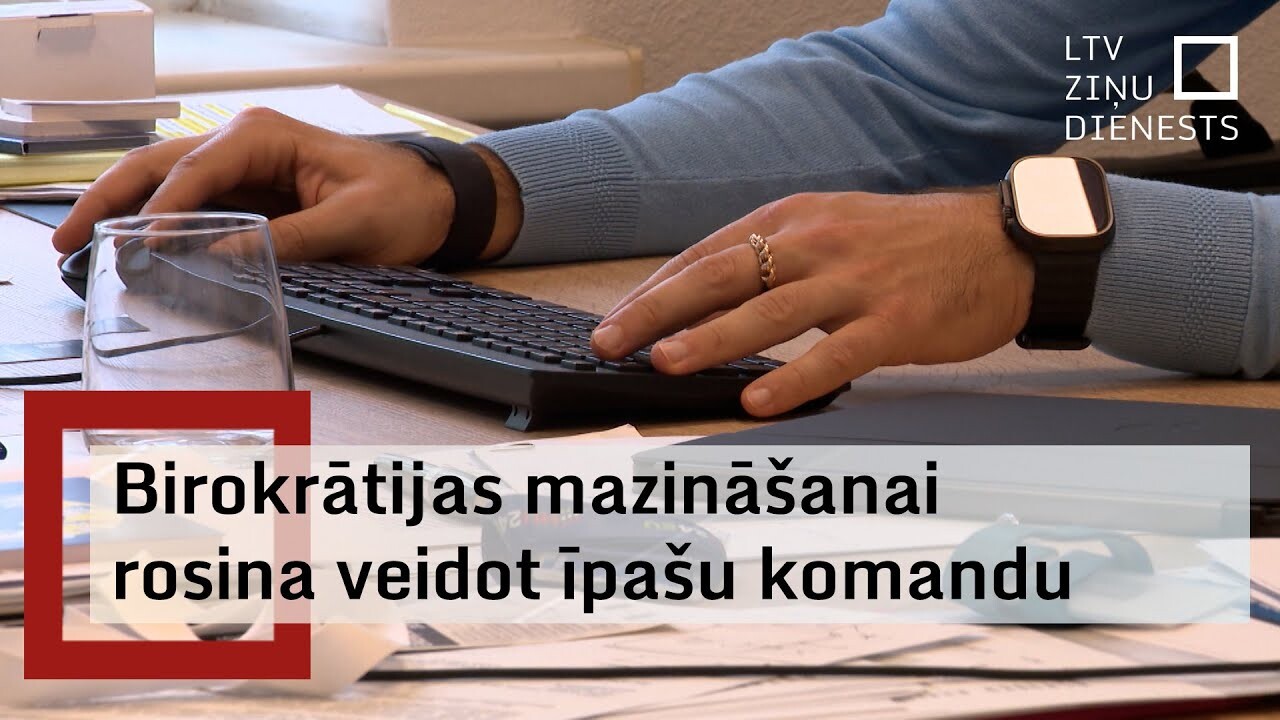Greater clarity about who will lead a working group that is supposed to reduce public sector bureaucracy might could be available as early as August… or maybe September, Prime Minister Evika Siliņa (New Unity) told reporters on Tuesday.
As prevously reported by LSM, for months the coalition government has been trumpeting its intention of cutting bureaucracy. Back in March it announced that it was setting up a working group to do so – an unfortunate instance of creating a new bureaucratic body to cut back on bureaucracy – and in April the government okayed a 21-point bureaucracy reduction plan.
Siliņa said July 22nd that no specific person has yet been named as the possible leader of the bureaucracy reduction group in future, but there are already ideas.
Aigars Rostovskis, Chairman of the Council of the Latvian Chamber of Commerce and Industry (LTRK), said that this process requires one responsible person – possibly from the private sector – who would enjoy the trust of the public and whose sole task would be to monitor progress in reducing bureaucracy.
“Then it would be like this person in charge with a small team of experts. We believe that it would not even be reimbursable from the state budget. It would be on a voluntary basis. Some proposals would come together, and we would then discuss them in this group that has been established. But in the end, the decisions still have to be made by politicians, the Cabinet of Ministers, maybe parliament, and to a large extent that is where the decision lies,” said Rostovskis.
It is not yet clear whether this will be a full-time position. However, both the Prime Minister and Rostovskis emphasized that a person is needed who is fully focused on this work, working together with a team of experts – which would tend to suggest a full-time post unless the candidate is capable of startling efficiency to hold down another job at the same time.
However, it appears that pretty much everything beyond the original intent to cut bureaucracy remains to be decided – including finding someone who will ultimately make decisions.
Siliņa said: “We will definitely ‘mature’ the idea a bit, we will understand what the best way is. We already have some kind of seed that could be a group of people. We need to understand what kind of team these people would be willing to work in. Politicians also definitely have to accept that such a group is operating and give this mandate credibility. Because it is clear that this means that it will be much more intensive work. And certainly at least the group leader must be free from any other duties. It takes some time – to also adjust the calendar of [finding] the potential leader. Because, yes, we are thinking about it right now, and most likely in August or September it could also become clear who this group would be.”
Select text and press Ctrl+Enter to send a suggested correction to the editor
Select text and press Report a mistake to send a suggested correction to the editor
Tell us about a mistake
